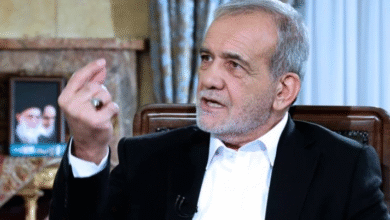
Canada Global(Web News)The second and last lunar eclipse of this year took place on the intervening night of Saturday and Sunday, which was seen in most countries of the world including Pakistan.
A partial lunar eclipse occurred in Pakistan, the lunar eclipse started at 11:20 PM and peaked at 1:14 PM.
The total duration of the lunar eclipse was 4 hours and 24 minutes, which ended at 3:26 am.
Lunar eclipse was seen in Asia, Australia, America, Africa and Atlantic countries including Pakistan. The first lunar eclipse took place between 5 and 6 May this year.




